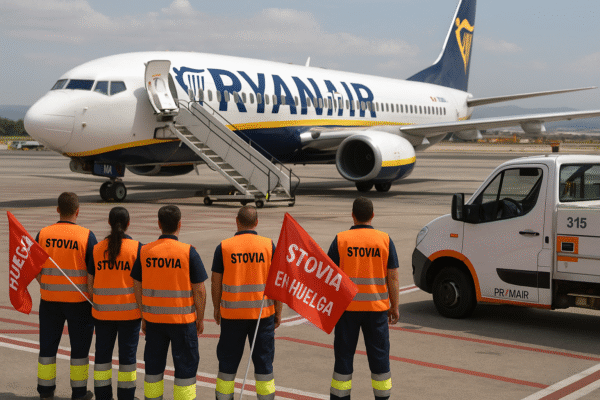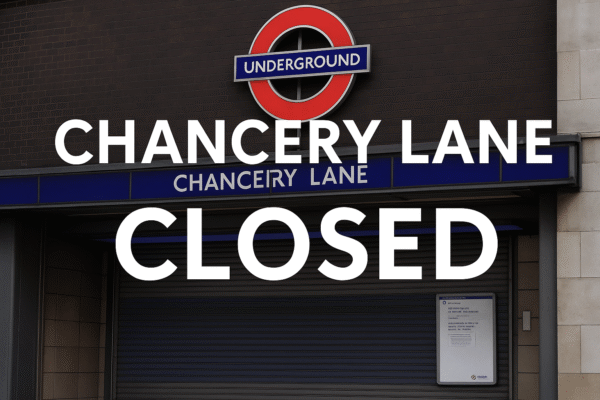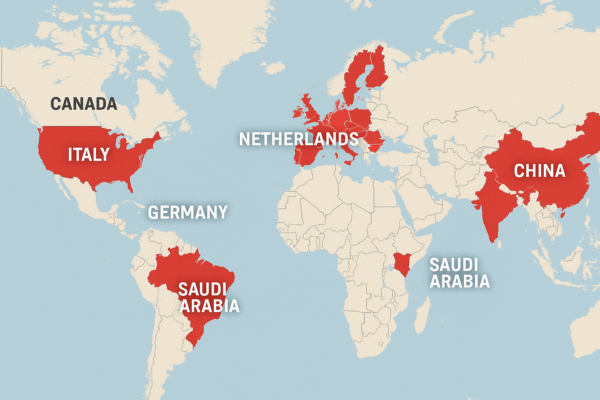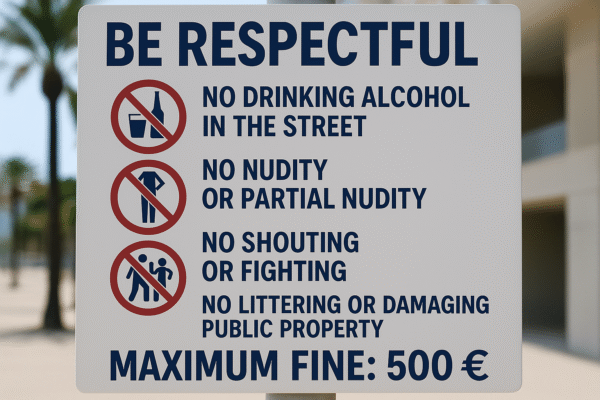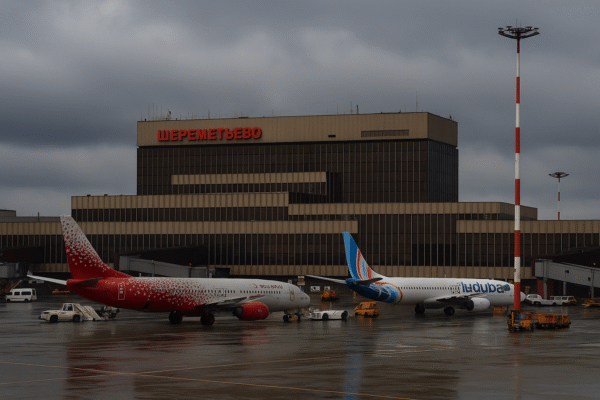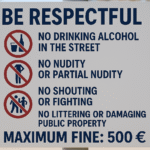Holidaymakers heading to Spain this August are facing serious travel disruptions as ground-handling staff contracted by Ryanair are set to walk out across the country’s major airports. The strike, organized by the UGT and CGT unions, involves employees of Azul Handling—a critical support provider for Ryanair—and will kick off with a three-day work stoppage from 15 to 17 August 2025, followed by repeated strikes every Wednesday, Friday, Saturday, and Sunday until the end of December 2025.
The strike is set to impact over 27 major airports, including Madrid, Barcelona, Alicante, Seville, Malaga, Valencia, Palma de Mallorca, Tenerife South, and others. These hubs are among the busiest during the summer peak season and serve millions of tourists from across Europe, particularly from the UK, Ireland, Germany, and France.
Strike Schedule: When and Where
The strike will disrupt airport operations during three critical time windows each day:
- Morning: 05:00–09:00
- Midday: 12:00–15:00
- Evening: 21:00–23:59
These strike windows coincide with the highest traffic periods at airports, heightening the potential for widespread delays and cancellations. Azul Handling’s services include baggage processing, aircraft refueling, ramp services, and boarding support, making their absence a significant risk to timely flight departures and arrivals.
Why the Workers Are Striking
The unions have accused Azul Handling of labor abuses, including:
- Excessive and forced overtime
- Lack of stable contracts and consolidation of hours
- Disciplinary penalties perceived as unjust
- Limited flexibility for scheduling and poor integration of returning medical leave workers
- Ignoring previous labor rulings and negotiation efforts
Over 3,000 workers across Spain are involved in the protest, and the unions emphasize that the strike is a response to “chronic neglect” by the company and an urgent call for improved conditions and respect for labor rights.
Ryanair’s Response and Expected Disruption
Ryanair, Europe’s largest low-cost carrier, has downplayed the strike, claiming that minimal disruption is expected. However, aviation experts caution that the airline’s operations could face cascading delays due to the dependency on Azul Handling’s ground services.
While Ryanair intends to maintain its flight schedule, passengers are advised to monitor their flight status frequently and prepare for potential delays, especially around boarding, baggage claim, and refueling services.
Passenger Rights Under EU Law
Travellers impacted by delays or cancellations during the strike may be eligible for compensation under EU Regulation 261/2004, which outlines the rights of air passengers in cases of significant disruption.
According to EU law:
- Passengers delayed more than 3 hours at arrival may claim compensation between €250 to €600, depending on the flight distance.
- Compensation may not apply if the airline proves the delay was due to extraordinary circumstances, such as weather events or security threats.
However, legal precedents in Europe suggest that strikes by subcontractors, such as Azul Handling, do not automatically qualify as extraordinary. This means Ryanair may still be held responsible for compensating its passengers unless it can prove all reasonable measures were taken to mitigate the disruption.
Practical Travel Tips for Affected Tourists
Here are some proactive steps travelers can take to reduce the impact of the upcoming strikes:
- Check Flight Status Regularly
Use Ryanair’s website or mobile app to stay updated on your flight. - Arrive Early at the Airport
Expect slower services for check-in and baggage handling. - Consider Alternative Routes
Have backup flight options or alternative transport methods in case of cancellations. - Know Your Rights
Familiarize yourself with EU compensation rules and gather documentation (boarding passes, delay notices) to support potential claims. - Travel Insurance
Ensure your policy covers strike-related issues, especially if you’ve pre-booked accommodations or tours.
Wider Impact on Spain’s Tourism Sector
Spain’s tourism industry, which represents a significant share of the country’s GDP, may face ripple effects if the strike persists. August is one of the busiest months for inbound travel, and Ryanair is a key carrier for budget-conscious tourists visiting beach towns, historic cities, and island destinations.
Disruptions to Ryanair’s flight operations could hurt local businesses, including hotels, restaurants, car rentals, and tourist attractions. Negative travel experiences may discourage future visits, especially among international tourists seeking hassle-free holiday options.
The Spanish government and tourism boards may be compelled to intervene with emergency services or passenger assistance programs if the strike escalates or causes widespread complaints.
Conclusion
With thousands of ground staff walking out and major airports caught in the middle, the Ryanair strike in Spain is set to test the resilience of the tourism sector at the height of the travel season. Passengers traveling between mid-August and December should stay vigilant, prepare accordingly, and know their rights to ensure a smoother journey.
Whether heading to the beaches of Tenerife, the historical alleys of Seville, or the bustling streets of Madrid, travelers are advised to stay informed, plan ahead, and remain flexible in the face of ongoing disruptions.
For more travel news like this, keep reading Global Travel Wire




